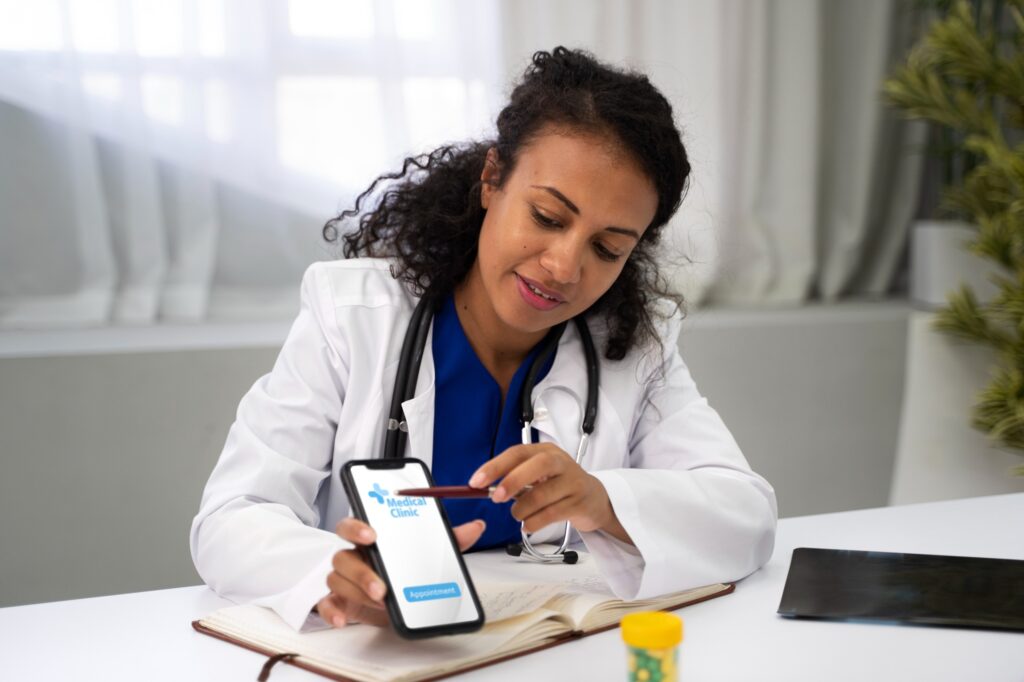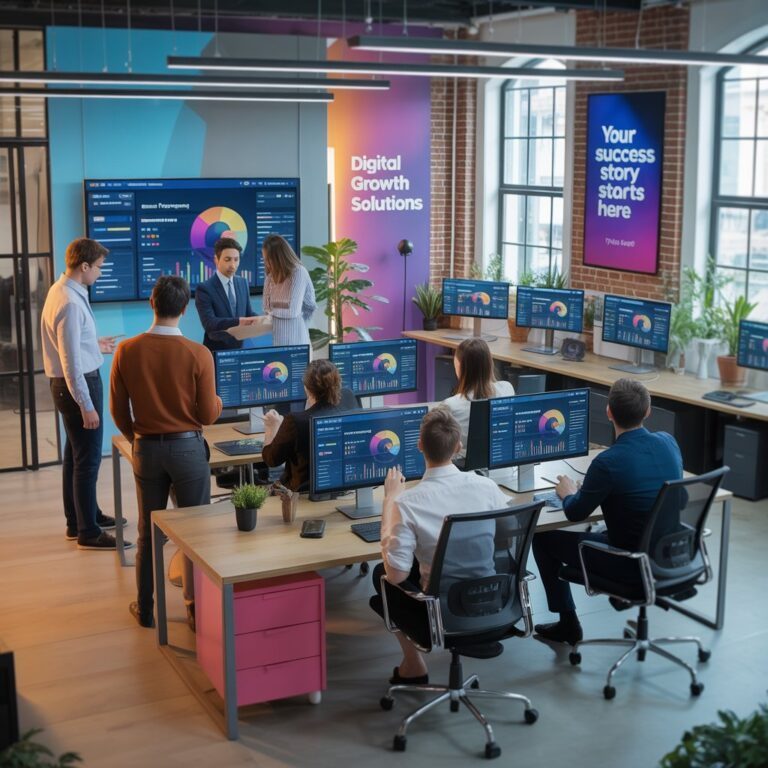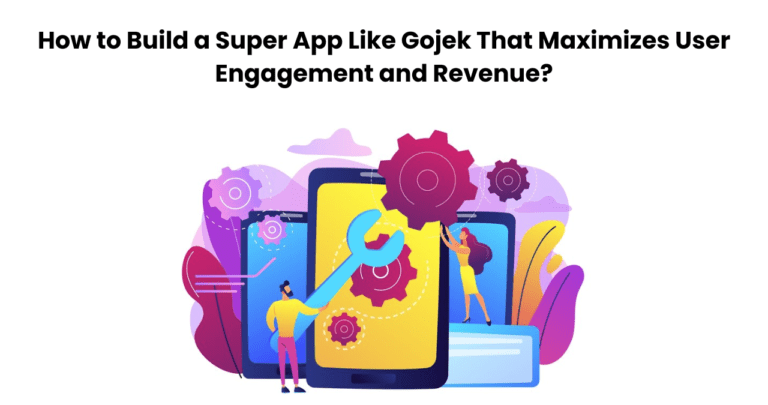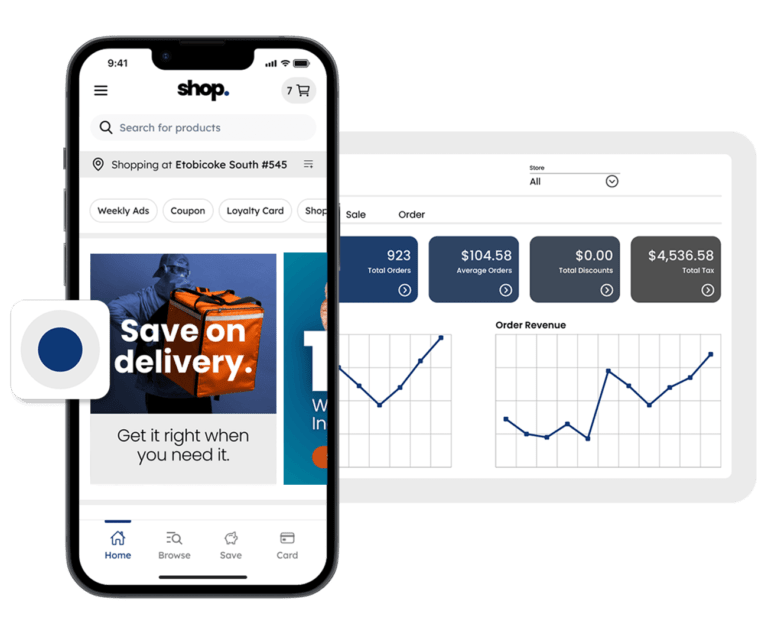In the age of digital transformation, the healthcare industry is rapidly evolving. From virtual consultations and electronic health records to AI-based diagnostics and remote patient monitoring, healthcare app development is revolutionizing the way care is delivered and received. However, building healthcare software is a complex task that requires not just technical expertise but also a deep understanding of medical standards, patient safety, data privacy, and compliance regulations.
If you’re a healthcare provider, startup founder, or medical entrepreneur with a vision to bring a digital product to life, partnering with the right software company is your most critical decision. Successful collaboration can mean launching a secure, scalable, and user-friendly app that improves patient outcomes and provider efficiency. On the flip side, poor coordination can lead to missed deadlines, budget overruns, and a product that fails to meet industry or user needs.
This article provides a comprehensive guide on how to collaborate effectively with a software company to build robust, innovative healthcare software in 2025.
1. Understanding the Complexity of Healthcare App Development
Before reaching out to any development partner, it’s essential to understand that healthcare app development is unlike building a generic app. It involves:
-
Regulatory compliance (HIPAA, GDPR, HL7, FHIR, etc.)
-
Data encryption and cybersecurity
-
Interoperability with existing hospital systems
-
Usability for non-tech-savvy users (patients, older adults, caregivers)
-
Medical accuracy and validation
Hence, your software partner should ideally have prior experience in the healthcare space and a strong understanding of medical workflows.
2. Define a Clear Product Vision
Start by outlining your goals, target users, and core features. Whether it’s a telemedicine platform, appointment scheduling tool, EHR system, or a chronic disease management app, clarity on your vision will guide your collaboration with the software team.
Include in your brief:
-
What problem are you solving?
-
Who are the end users (doctors, patients, administrators)?
-
What platforms will the app run on (iOS, Android, Web)?
-
Do you need integrations (labs, pharmacies, wearable devices)?
-
What’s your timeline and budget?
The more detailed your product idea, the easier it is for a software company to understand your expectations and provide realistic solutions.
3. Choose the Right Software Company
Not all development companies are equipped to handle the demands of healthcare app development. Look for partners who:
-
Have experience building healthcare or medical apps.
-
Understand healthcare regulations and compliance requirements.
-
Have a proven track record (check their portfolio and case studies).
-
Offer end-to-end services—from ideation to maintenance.
-
Have in-house teams (designers, developers, QA, compliance experts).
-
Communicate well and show genuine interest in your mission.
A great way to vet a company is to request a discovery call, see how they approach your problem, and whether they ask insightful questions about medical workflows, compliance, and patient safety.
4. Set a Collaboration Framework
Collaboration isn’t just about sharing files and weekly updates. You need a structured, transparent framework to stay aligned at every stage of the project.
a. Choose a Project Methodology
Agile is often the best fit for healthcare software as it allows iterative development and faster feedback. With Agile:
-
You build in sprints.
-
Features are released gradually.
-
You test usability and compliance along the way.
Other options include Waterfall (less flexible) or Hybrid models, depending on the scope and nature of your app.
b. Appoint a Product Owner
Assign someone from your side (preferably with a healthcare background) to act as the main point of contact. This person bridges communication, manages feedback, and ensures development aligns with your medical goals.
c. Use Project Management Tools
Agree on tools like:
-
Jira, Trello, or ClickUp for task management.
-
Slack, Teams, or Zoom for communication.
-
Figma or InVision for design collaboration.
5. Focus on Compliance and Security from Day One
Unlike eCommerce or social media apps, healthcare applications handle sensitive patient data. Regulations like HIPAA (USA), GDPR (Europe), and local data protection laws mandate specific practices to ensure privacy and security.
Key practices your software partner must follow:
-
End-to-end encryption of data (in transit and at rest).
-
Role-based access control and secure login.
-
Secure APIs and token-based authentication (e.g., OAuth 2.0).
-
Regular security audits and penetration testing.
-
Data anonymization and secure backups.
-
Compliance with FHIR or HL7 for interoperability with EHRs.
Ask your software company if they have a compliance officer or experience working with third-party audits or certifications.
6. Develop a Minimum Viable Product (MVP)
Rather than building the full product at once, work with your software partner to launch an MVP—a lean version of your app with core functionalities.
Benefits of an MVP:
-
Faster time-to-market.
-
Early user feedback.
-
Lower initial investment.
-
Easier to pivot based on real-world usage.
Your software company should help prioritize features based on user value and technical complexity, ensuring you focus on what matters most.
7. Emphasize UX/UI for Both Patients and Providers
Healthcare users come from diverse backgrounds—elderly patients, caregivers, doctors, nurses, administrative staff. Each user type has unique needs and limitations.
Your app’s design must prioritize:
-
Simplicity and clarity.
-
Accessibility (font size, color contrast, screen readers).
-
Easy navigation and onboarding.
-
Multilingual support (if applicable).
-
Fast-loading, responsive design.
Work with your software company’s UX/UI team to create user personas, wireframes, and clickable prototypes before actual development begins.
8. Build for Interoperability
Your healthcare app is not an island. It needs to connect with other systems—EHRs, insurance platforms, lab systems, or wearables like Fitbit and Apple Watch.
Your development team should:
-
Use standard APIs (FHIR, HL7, DICOM).
-
Create secure integration layers.
-
Ensure data mapping and consistency.
-
Plan for data syncing across platforms.
This ensures seamless care coordination and better outcomes for users.
9. Implement Robust Testing Procedures
In healthcare, a bug or miscalculation can cause serious harm. Your software partner must invest heavily in:
Types of testing:
-
Unit testing: Code-level validation.
-
Integration testing: Verifying system interactions.
-
Functional testing: Validating business workflows.
-
Usability testing: Ensuring ease of use.
-
Compliance testing: Confirming regulatory requirements.
-
Security testing: Vulnerability scans and pen-testing.
You should also conduct UAT (User Acceptance Testing) with real users—doctors, nurses, and patients—before launching.
10. Plan for Deployment and Post-Launch Support
Once your healthcare app is ready, launching it isn’t the finish line—it’s just the beginning.
Your software company should help with:
-
App store deployment (Google Play, Apple Store).
-
Cloud hosting (AWS, Azure, or HIPAA-compliant platforms).
-
Setting up monitoring dashboards.
-
Training your internal staff to use the app.
-
Ongoing updates, patches, and compliance monitoring.
Ensure you have a post-launch agreement for maintenance and bug fixing.
11. Collaborate on Analytics and Iteration
After launch, collect real-world data to improve the app. Metrics like user retention, error logs, time-on-task, and feedback can guide your next development sprint.
Work with your software company to:
-
Integrate analytics tools (Google Analytics, Mixpanel, Firebase).
-
Generate reports on app usage and KPIs.
-
Plan roadmap updates based on performance.
This is key to evolving your app from an MVP to a full-scale, feature-rich healthcare platform.
12. Establish Legal and Business Terms Early
To protect your idea and ensure smooth business operations, clarify legal agreements before starting.
Documents to prepare:
-
NDA (Non-Disclosure Agreement): To protect your intellectual property.
-
SOW (Statement of Work): Detailed scope, deliverables, and timelines.
-
MSA (Master Services Agreement): General business terms, payment schedules, and support.
-
IP Rights Agreement: To ensure you own the software and source code.
Always consult a legal advisor experienced in software and healthcare contracts.
Conclusion: Building Better Healthcare Together
The journey of healthcare app development is a collaborative one—requiring vision, medical insight, technical skill, and regulatory awareness. Choosing the right software company and setting a strong foundation for collaboration can make the difference between success and stagnation.
By following the steps in this guide—defining your goals, choosing a specialized partner, aligning on compliance, prioritizing usability, and planning for long-term growth—you can co-create a digital solution that makes a real difference in people’s lives.
In 2025, the healthcare world demands innovation—but also trust. With the right partnership, you can deliver both.












